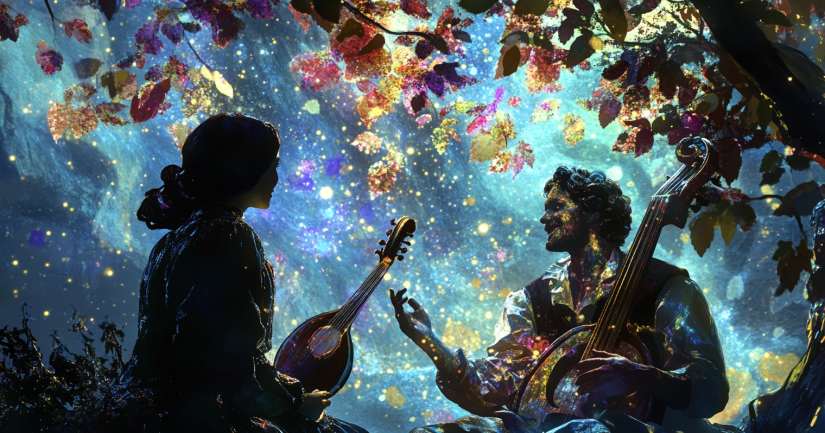
Analyze the clever plotting and character dynamics in Twelfth Night Act 3 Scene 1 Quiz with our quiz. Get ready to dive into the enchanting world of Shakespeare’s comedy. This quiz will take you on a journey through witty banter and hidden identities. You will explore the vibrant interactions between Viola and the charming Feste.
As you answer each question, you will uncover the clever wordplay and the intriguing dynamics of mistaken identities. Prepare to unravel the complexities of love and friendship. This scene is brimming with humor and surprises, offering insights into the characters’ motivations.
The mistaken identities are causing even more chaos can you keep track? See what happens next in Twelfth Night Act 3 Scene 2 Quiz as Sir Andrew takes some questionable advice. If you want to test your knowledge of Act 3 as a whole, check out the Twelfth Night Act 3 Quiz. And if you’re ready to take on the entire play, the Twelfth Night Full Book Quiz is waiting for you!
By participating in this quiz, you will enhance your understanding of the play’s themes and the nuances of Shakespeare’s language. Discover how the bard cleverly weaves humor into the storyline, creating moments that are both poignant and entertaining. As you progress, you’ll gain a deeper appreciation for Shakespeare’s timeless wit and the enduring relevance of Twelfth Night. Twelfth Night Quizzes: Love, disguise, and trickery …
What Happened – Twelfth Night Act 3 Scene 1 Quiz
Viola, disguised as Cesario, arrives at Olivia’s garden. She meets Feste, Olivia’s clown. Feste jokes and sings for her. Viola enjoys his humor. Sir Toby and Sir Andrew arrive. They greet Viola politely. Viola asks to see Olivia. Sir Andrew and Sir Toby allow it. Olivia enters and sends the others away. She wants to speak with Viola alone. Olivia confesses her love for Cesario. Viola, as Cesario, says she cannot love Olivia back. Viola insists she is there to speak for Duke Orsino. Olivia does not want to hear about Orsino. She wants Cesario to visit again. Viola leaves, promising to return. Olivia is hopeful and plans to win Cesario’s love.
Twelfth Night Act 3 Scene 1 – Quotes
- “Foolery, sir, does walk about the orb like the sun, it shines everywhere.” – Feste, ‘Commenting to Viola on the universality of foolishness.’
“This fellow is wise enough to play the fool.” – Viola, ‘Reflecting on Feste’s intelligence and the nature of wisdom.’
“Love sought is good, but given unsought is better.” – Olivia, ‘Expressing her feelings for Cesario, highlighting the theme of unrequited love.’
“I am not what I am.” – Viola, ‘Admitting to Olivia the complexity of her disguise and true identity.’
“By my troth, thou hast an open hand.” – Olivia, ‘Acknowledging Cesario’s honesty and generosity.’
“Why, this is very midsummer madness.” – Olivia, ‘Reacting to the chaotic and confusing situation with Cesario.’
“My lady loves me.” – Malvolio, ‘Misinterpreting Olivia’s kindness, leading to his humorous downfall.’
“Fate, show thy force.” – Viola, ‘Resigned to the power of fate in her complicated love situation.’
Twelfth Night Act 3 Scene 1 – FAQ
Act 3 Scene 1 is a pivotal moment in Shakespeare’s Twelfth Night. It marks the deepening of the play’s central romantic and comedic entanglements. Viola, disguised as Cesario, encounters Olivia, which intensifies the love triangle involving Orsino, Olivia, and Viola. This scene highlights themes of mistaken identity and unrequited love, driving the plot forward.
Viola’s disguise as Cesario creates dramatic irony and confusion. Olivia, unaware of Viola’s true identity, openly declares her love for Cesario. This disguise complicates relationships and adds layers of humor and tension. It underscores the theme of deception, as Viola must navigate her own feelings for Orsino while managing Olivia’s affections.
Feste, the fool, plays a crucial role by providing wit and insight. His banter with Viola showcases his cleverness and ability to see through disguises. Feste’s presence underscores the play’s exploration of identity and truth. His commentary often reveals deeper truths masked by the comedic surface, enriching the scene’s thematic complexity.
Shakespeare employs wordplay, puns, and double entendres to enrich character interactions. The dialogue between Viola and Feste is laden with wit, while Olivia’s earnest declarations contrast with Viola’s evasive responses. This use of language heightens the comedic elements and deepens the emotional stakes, showcasing Shakespeare’s mastery of dialogue.
Key themes in this scene include love, identity, and deception. The complex interplay of these themes is evident as characters grapple with hidden truths and concealed emotions. The scene’s humor and misunderstandings emphasize the fluid nature of identity and the often-blind pursuit of love, central to the play’s enduring appeal.
